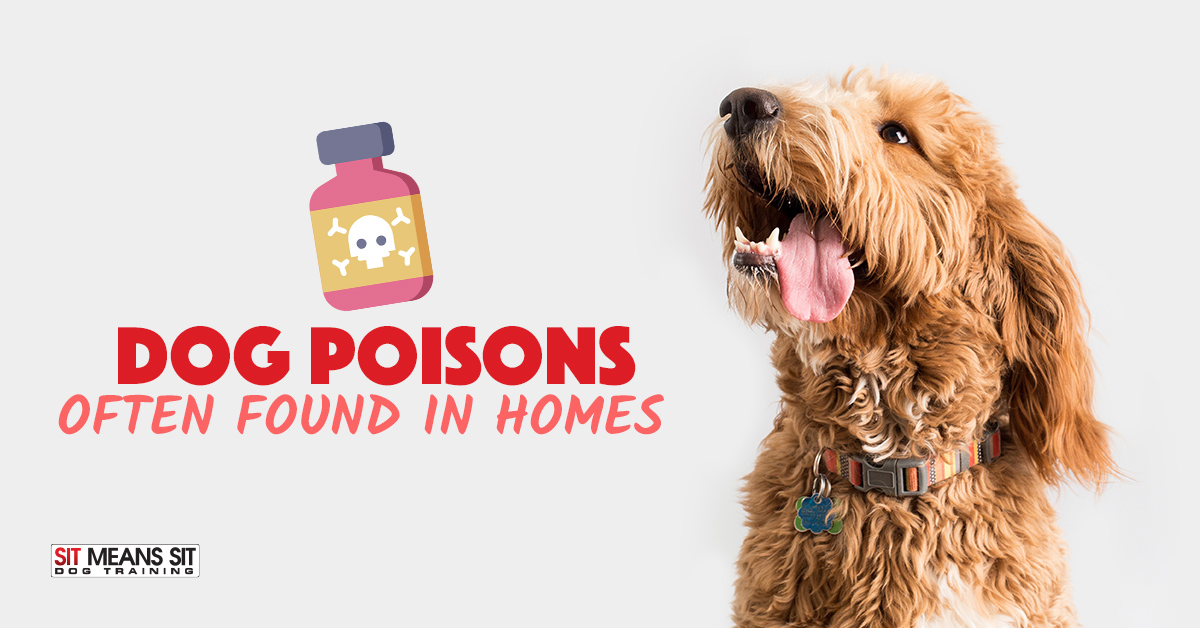
Dog Poisons Often Found in Homes
We all know that puppy-proofing the home means keeping shoes out of the way, doors locked, and furniture covered. However, more important than making sure that your dog doesn’t tear up your underwear is making sure that they don’t get into something that could be toxic or life-threatening. As a dog owner, you should know the potentially poisonous substances in your home and keep them far away from your dog. Here are some surprising poisons that you should be wary of:
Essential Oils
Aromatherapy is a great way for us to reduce stress and increase feelings of wellbeing, but many essential oils that we use, such as cinnamon, peppermint, citrus, tea tree, wintergreen, ylang-ylang, pine, and sweet birch are poisonous to dogs. Essential oils may be hidden in cleaning products, perfumes, drinks, and personal care products as well, so check labels before bringing these items near your pet. Signs of essential oil poisoning include drooling, vomiting, difficulty breathing, lethargy or weakness, and muscle tremors. For more information on the dangers of essential oils, check out our post here.
Acetaminophen
Commonly known as Tylenol, acetaminophen is an over-the-counter pain reliever that can also be found in many cough and cold medicines. Acetaminophen is toxic to pets and should never be given to them for any reason. Stick to vet-approved dog-friendly painkillers instead. Acetaminophen damages the liver and can result in liver failure. It may also cause progressive depression, drooling, nausea, abdominal pain, shock, rapid breathing, and vomiting.
Ibuprofen
Although ibuprofen is a relatively safe pain reliever for many people, even small amounts can be extremely harmful to pets. Ibuprofen is quickly absorbed in the bloodstream and can block enzymes for gastrointestinal control. Since ibuprofen can impact many organ systems, the symptoms include reduced appetite, diarrhea, abdominal pain, lethargy, depression, vomiting, increased drinking and urination, and bloody stools.
Sago Palms
Sago palms make for gorgeous decorations inside your home, but they can be deadly for pets. Sago palms contain cycasin, which can cause liver and nervous system toxicity. This can result in blood in the feces, abdominal pain, vomiting, diarrhea, reduced appetite, nosebleeds, yellow coloration of the skin and gums, and neurological signs like depression or seizures.
Chives
Similar to garlic, chives are very dangerous for dogs. Consuming chives can lead to inflammation of the digestive tract and lead to drooling, vomiting, abdominal pain, and diarrhea. While these symptoms are usually fleeting, further consumption of chives can result in pale gums, rapid heart rate, exercise intolerance, collapse, foul breath, rapid breathing, and weakness.
Be sure to look out for any of these signs in your dog, especially if you have any of the above toxins in your home. Keeping locks on cabinets and making sure that all of these toxins are out of reach of your dog is another great way to make sure your dog is safe.
